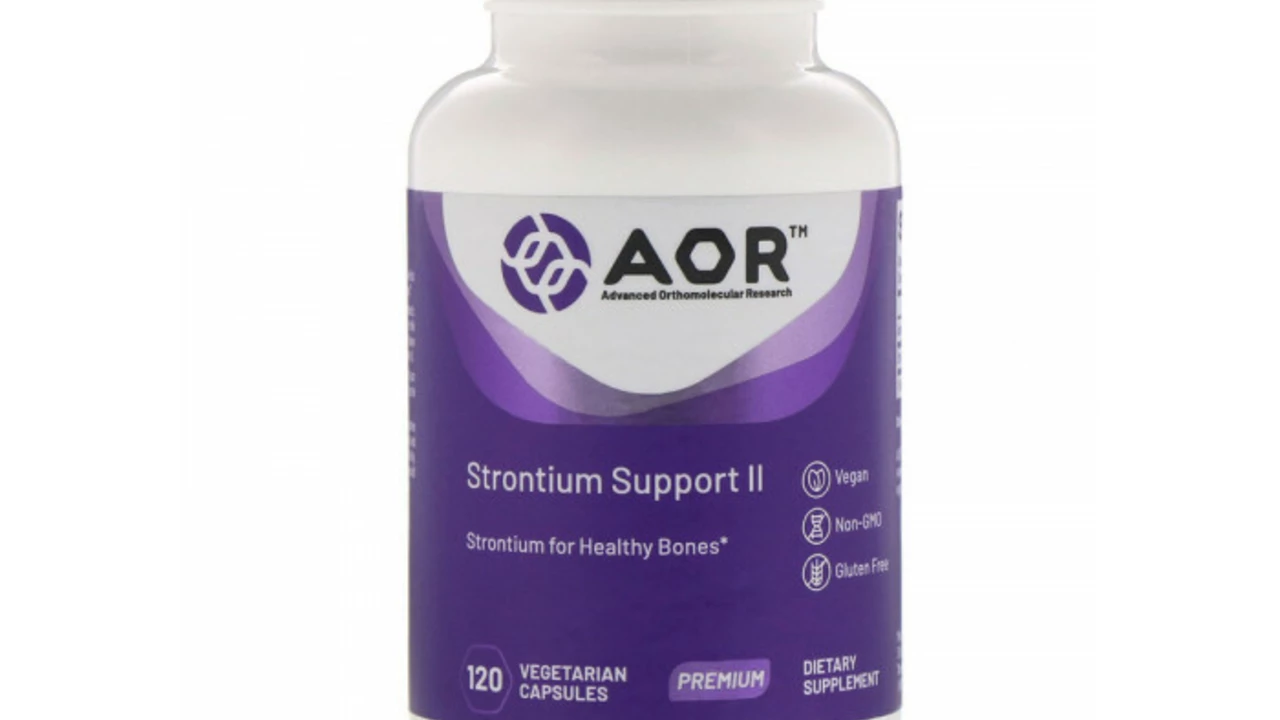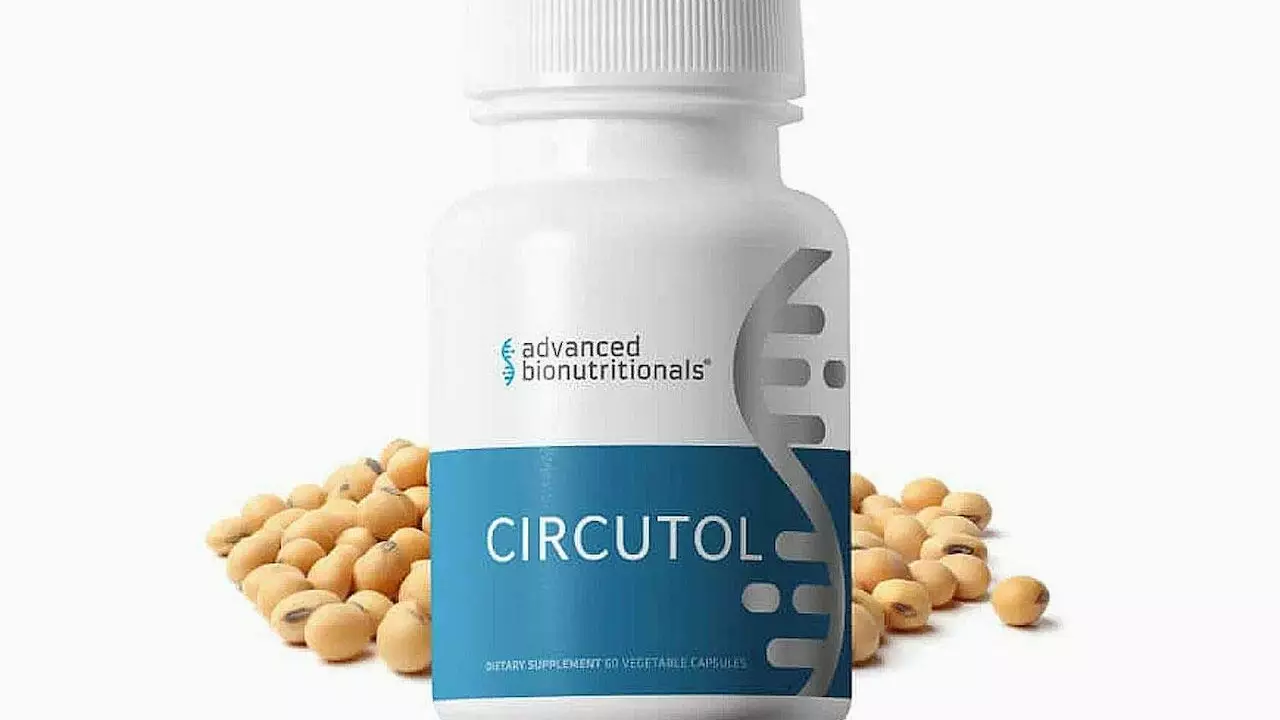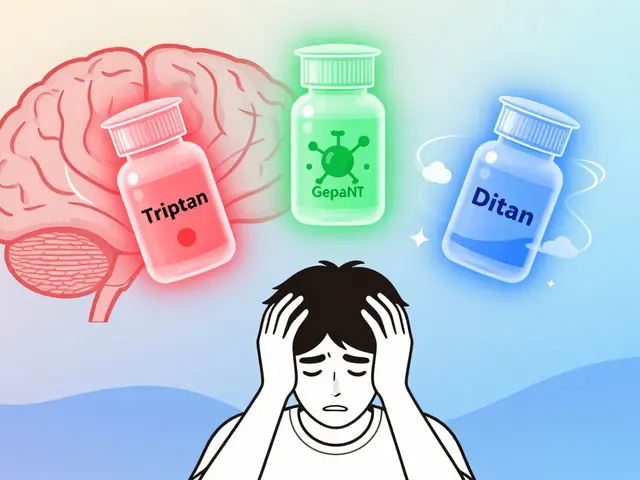Understanding Strontium: The Essential Element for Bone Health
As we age, maintaining strong and healthy bones becomes increasingly important. One essential element that has been gaining attention in the world of bone health is strontium. Strontium is a naturally occurring element found in our food and water supply. Research has shown that this vital nutrient has significant benefits for our bones, helping to increase bone density and reduce the risk of fractures. In this section, we'll dive into the basics of strontium, its sources, and why it's so important for maintaining strong bones.
Strontium is a trace element that is chemically similar to calcium. It is found in small amounts in our bones, teeth, and in various foods such as seafood, grains, and certain vegetables. Strontium can also be derived from supplements, which are commonly available in the form of strontium ranelate or strontium citrate. These supplements have been proven to be effective in improving bone density and preventing bone loss in individuals with osteoporosis.
The Science Behind Strontium's Impact on Bone Strength
Strontium's effects on bone health are backed by extensive research and scientific studies. The reason behind its positive impact on our bones lies in its chemical similarity to calcium. Our body easily absorbs strontium through the same pathways as calcium, and it can effectively replace some of the calcium in our bones. This helps to improve bone mineral density and overall bone strength.
Several studies have shown that strontium can stimulate the activity of osteoblasts, which are the cells responsible for forming new bone tissue. At the same time, it can also inhibit the activity of osteoclasts, the cells that break down bone tissue. This dual action helps to maintain a healthy balance of bone formation and resorption, leading to stronger and healthier bones.
Who Can Benefit from Strontium Supplementation?
Strontium supplementation can be beneficial for a wide range of individuals, particularly those at risk of developing osteoporosis or those who have already been diagnosed with the condition. Postmenopausal women, elderly individuals, and people with a family history of osteoporosis are at a higher risk of developing this bone disease. In these cases, strontium supplementation can help to maintain bone density and reduce the risk of fractures.
Moreover, individuals who have a low calcium intake, a sedentary lifestyle, or are on long-term corticosteroid therapy may also benefit from strontium supplementation. However, it is important to note that strontium should be used as a complementary treatment to other bone-strengthening strategies such as a calcium-rich diet, regular exercise, and adequate vitamin D intake.
How to Choose the Right Strontium Supplement
When it comes to selecting a strontium supplement, it's crucial to choose a high-quality product from a reputable source. There are two main types of strontium supplements available on the market: strontium ranelate and strontium citrate. Strontium ranelate has been widely studied and proven to be effective in improving bone density and preventing fractures. However, it is only available by prescription in some countries due to its potential side effects.
Strontium citrate, on the other hand, is a more readily available and safer option for most individuals. It is easily absorbed by the body and provides similar benefits to strontium ranelate. When choosing a strontium citrate supplement, look for a product with a clear label that indicates the amount of elemental strontium per serving. The recommended daily dose of strontium for bone health is between 200 and 680 mg, depending on individual needs and the advice of a healthcare professional.
Precautions and Potential Side Effects of Strontium Supplementation
While strontium supplementation can be a valuable tool in maintaining strong bones, it's important to be aware of potential side effects and precautions. Some individuals may experience side effects such as diarrhea, nausea, or skin rash when taking strontium supplements. In rare cases, strontium ranelate has been associated with an increased risk of blood clots and heart problems. It's essential to consult with a healthcare professional before starting strontium supplementation, especially if you have a history of blood clots, heart disease, or kidney problems.
Additionally, strontium should not be taken at the same time as calcium supplements or calcium-rich foods, as they can interfere with each other's absorption. It's best to take strontium supplements at least two hours before or after consuming calcium-rich products. Lastly, always remember that strontium should be used in conjunction with other bone-strengthening strategies, such as a balanced diet, regular exercise, and maintaining adequate levels of vitamin D.
In conclusion, strontium is a powerful dietary supplement that can play a vital role in maintaining strong and healthy bones. By understanding its benefits, how it works, and the precautions to take, you can make an informed decision about whether strontium supplementation is right for you.






Diane Larson on 18 June 2023, AT 14:10 PM
Strontium can be a useful addition for folks looking to boost bone density, but it’s not a magic bullet. I always suggest checking with a healthcare professional before starting any supplement, especially if you have existing heart or kidney issues. Pairing strontium with a calcium‑rich diet, regular weight‑bearing exercise, and sufficient vitamin D tends to give the best results. The dosage window of 200‑680 mg per day is pretty broad, so tailoring it to your personal needs is key. Keep an eye on any gastrointestinal side effects and report them promptly.